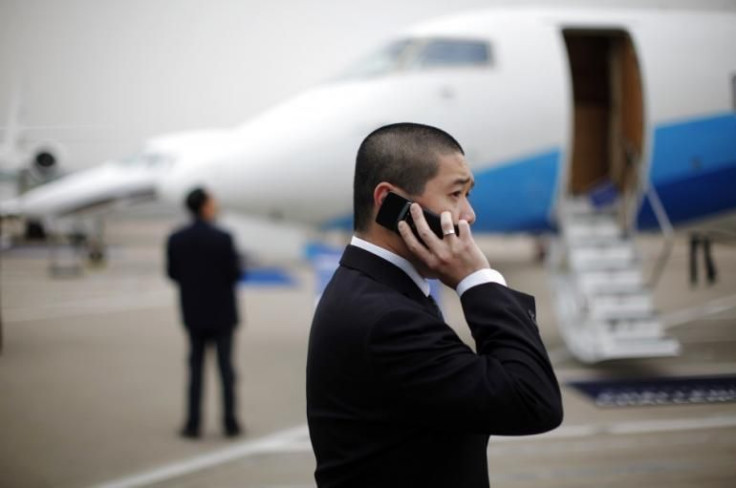FCC May Allow Phone Calls On Flights, But Do Passengers Really Want That?

The Federal Aviation Administration’s decision last month to allow gate-to-gate use of portable electronic devices on airlines appears to have opened the floodgates to a wide-sweeping overhaul of how we travel in the digital age. But critics say the latest proposal, in-flight mobile broadband, may be taking the trend one step too far.
“Today, we circulated a proposal to expand consumer access and choice for in-flight mobile broadband,” FCC Chairman Tom Wheeler stated Thursday. “Modern technologies can deliver mobile services in the air safely and reliably, and the time is right to review our outdated and restrictive rules.”
Wheeler said he looked forward to working closely with his colleagues, the FAA and the airline industry “on this review of new mobile opportunities for consumers.”
Like the current FAA rules on use of the Internet, cell phone calls, texts and other mobile services are expected to be limited to when the aircraft is above 10,000 feet. Airlines would also be required to equip planes with special antennas approved by the FAA before anyone phones a friend.
FCC’s new proposal is seen as an attempt to give airline passengers the same ability to work and communicate that they have on land-based options like trains and buses, both of which have shown larger growth in recent years than the U.S. aviation industry. But whether airlines or passengers want phones fully operational on planes remains up for debate.
Henry H. Harteveldt, travel industry analyst at Hudson Crossing, LLC, said he was surprised by the FCC announcement given that there is “no commercial demand, no demand from passengers and no demand from airlines.”
“The last thing you need is to have your blood pressure raging on a crowded flight thanks to someone next to you jabbering on endlessly, be it for business or personal reasons,” he said. “This could contribute to an increase in air rage in passengers. I’m also concerned that someone talking on their cell during takeoff or landing -- when most accidents occur -- could compromise the ability of passengers to hear important safety information from the cabin crew.”
Harteveldt noted that the initial reaction to the FCC proposal had been quite negative, which indicates that if an airline does implement in-flight mobile broadband, they could risk loosing more passengers than they’d gain. Airlines, he said, would also have to install more equipment, which would make the planes heavier and increase fuel consumption.
Even leading in-flight wireless company Gogo Inc. (NASDAQ:GOGO), which announced a new app last week that leverages the company’s Wi-Fi to enable in-flight texts and calls, conceded that there was little demand among airlines for the talk portion of its service. Harteveldt said he wasn’t aware of any commercial airline that has signed on for Gogo’s talk service, though it is popular among private and charter jets.
The Association of Flight Attendants, the world’s largest flight attendant union, was the first group to issue a public statement Thursday opposing in-flight cell phone use and asking the FCC to shelf its proposal. “AFA opposes any changes that would allow in-flight voice calls,” a spokesperson said. “Flight attendants, as first responders and the last line of defense in our nation’s aviation system, understand the importance of maintaining a calm cabin environment. Any situation that is loud, divisive and possibly disruptive is not only unwelcome, but also unsafe.”
A 2012 survey by Delta Air Lines found that 64 percent of passengers believed the ability to make phone calls in-flight would have a negative impact on their onboard experience. Numerous other polls conducted over the past year paint a similar picture.
“Passengers overwhelmingly reject cell phone use in the aircraft cabin,” the AFA spokesperson continued. “In far too many operational scenarios, passengers making phone calls could extend beyond a mere nuisance, creating negative effects on aviation safety and security that are great and far too risky.”
The current proposal will be on the agenda at FCC’s Dec. 12 meeting, and will go up for public debate thereafter. The commission would have to vote on a final rule before any changes take effect and, if approved, individual airlines would have the final say as to whether or not to provide mobile service to passengers.
© Copyright IBTimes 2025. All rights reserved.






















